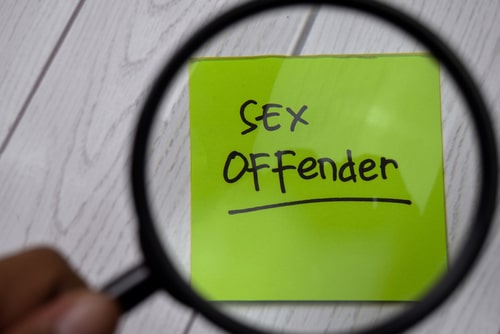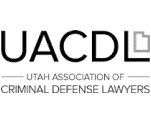Recent Blog Posts
How the Utah Sex Offender Registry Can Affect Your Life
 If you have been convicted of a sex crime, there is a good chance that you will be serving time. Unfortunately, your punishment will not stop there
If you have been convicted of a sex crime, there is a good chance that you will be serving time. Unfortunately, your punishment will not stop there
Did you know that most sex offenders have to register on the sex offender registry? Depending on the crime, you may need to be registered for life, with the requirement to re-register frequently.
Our attorneys are committed to helping people avoid the ramifications of being listed on Utah’s sex offender registry. If you have been charged with a sex crime, contact our office to speak with a Salt Lake City sex crimes attorney today
Trouble Finding Employment
Sex offenders who have been convicted of misdemeanor crimes will need to be registered on the sex offender registry for at least ten years, with offenders of more serious crimes having to register for life
Chances are that if you are listed on the registry, it is going to be difficult to find employment. Sex offenses will show up on a background check, which is conducted by most employers when you are applying for a job. Your potential employer will also be able to see that you are listed on the sex offender registry since that information is readily available to the public. Unsurprisingly, many employers are hesitant to hire sex offenders, and many offenders find it very difficult to find a job.
When Can an Officer Arrest You for a DUI?
 In 2017, the Utah legislature passed a bill that lowered the legal blood alcohol content (BAC) limit to 0.05 grams/deciliter, aiming to avoid accidents due to drunk driving.
In 2017, the Utah legislature passed a bill that lowered the legal blood alcohol content (BAC) limit to 0.05 grams/deciliter, aiming to avoid accidents due to drunk driving.
While a BAC will reveal if a motorist has been drinking, police officers also look for signs of impairment. Evidence of impairment can include anything from swerving between lanes, drifting, erratic braking, and even tailgating.
To keep you informed, our Salt Lake City DUI defense attorneys would like to discuss Utah’s DUI laws and what signs of impairment police officers look for when making a traffic stop.
Utah Blood Alcohol Limit
House Bill 155 lowered the BAC in Utah from 0.08 g/dL to 0.05 g/dL. Commercial drivers are held to an even higher standard. If you have a commercial driver’s license, the BAC limit is 0.04 g/dL.
A blood alcohol level may be obtained through testing a person’s blood, breath, or urine. Breathalyzer tests are notorious for being unreliable, with results indicating that people are drunk when they are, in fact, sober.
Will You Go to Prison for a Sex Crime Conviction?
 A sex crime can follow you for the rest of your life, with some of the most severe punishments pertaining to crimes against children. Utah imposes lengthy jail sentences for sex crime offenders, recently increasing minimum prison sentences for habitual offenders.
A sex crime can follow you for the rest of your life, with some of the most severe punishments pertaining to crimes against children. Utah imposes lengthy jail sentences for sex crime offenders, recently increasing minimum prison sentences for habitual offenders.
If you have been charged with a sex crime, it is crucial that you hire a Salt Lake City sex crimes attorney to defend your rights.
Utah Sex Crimes Against Children
A sex crime is any illegal activity involving a sexual component against another person. New research signifies that Utah’s rape rate is 55.5 per 100,000 people, with one in five children being sexually abused before turning 18 years old. In light of these alarming statistics, the Utah legislature has doubled down on punishments for sex crimes.
Two Utah sex crimes against minors include:
What to Do After an Arrest?
 An estimated 32,000 people are arrested each year in Utah. Following an arrest, you may not be aware of your rights. You may be agitated and think you have to answer any questions the police ask you.
An estimated 32,000 people are arrested each year in Utah. Following an arrest, you may not be aware of your rights. You may be agitated and think you have to answer any questions the police ask you.
Our Davis County criminal defense attorneys are here to provide you with an overview of your rights following an arrest and when you should contact an attorney.
Miranda Rights
If a police officer is arresting a suspect and intends to question them, then the officer must read the arrestee's Miranda rights.
Your Miranda rights come from the Supreme Court decision of Miranda v. Arizona. In Miranda, the defendant was arrested at his home and taken into police custody. He was interrogated by two police officers for two hours, after which he signed a written confession.
How a Sex Crime Conviction Can Affect Your Future
 A sex crime conviction can have a profound impact on your life. Besides having to serve time in prison and having a criminal record, the stigma of being a sex offender will always follow you.
A sex crime conviction can have a profound impact on your life. Besides having to serve time in prison and having a criminal record, the stigma of being a sex offender will always follow you.
If you have been charged with a sex crime, you need to do everything you can to protect yourself. The first step to protect your civil liberties and reputation is hiring a Davis County sex crimes attorney.
Types of Sex Crimes in Utah
Sex crimes are crimes that involve illegal sexual activity or a form of violence during a sexual act. Rape, forcible sexual abuse (sexual assault), forcible sodomy, and sex trafficking are all considered sex crimes under Utah Code.
Some basic definitions for each:
- Rape (first-degree felony): sexual intercourse with another person without that person’s consent
- Forcible sexual abuse (second-degree felony): touching the private genitalia or breasts of another person without that person’s consent
Can You Challenge Breathalyzer Results in Utah?
 Getting pulled over and accused of drunk driving can be a terrifying experience. The police are trained to take verbal and physical command of the situation, and many people find themselves agreeing to a breathalyzer test before they know what hit them.
Getting pulled over and accused of drunk driving can be a terrifying experience. The police are trained to take verbal and physical command of the situation, and many people find themselves agreeing to a breathalyzer test before they know what hit them.
If you found yourself in this situation, failed a test, and are now facing DUI charges, we have good news. There are often ways in which a Utah DUI defense attorney can challenge the results of a breathalyzer test. In fact, your lawyer may even be able to challenge the traffic stop altogether – potentially resulting in the state dropping the charges against you. Read on to learn more.
How an Attorney Can Challenge the Results of a Breathalyzer Test
Contrary to what police and prosecutors would have you believe, breathalyzer tests are not always accurate. There are many reasons that the results of a breathalyzer test may be inaccurate, including the following:
Understanding Why You Should Fight Your First Felony
 Facing a felony criminal charge in Utah can be a daunting and life-changing experience. Many individuals may be tempted to accept a plea deal, especially for their first felony, to avoid a trial's uncertainty and potential consequences. However, it is important to understand why fighting your first felony may be a better course of action. If you are facing a felony charge, contact a lawyer to ensure you can protect your rights and interests in the criminal proceeding.
Facing a felony criminal charge in Utah can be a daunting and life-changing experience. Many individuals may be tempted to accept a plea deal, especially for their first felony, to avoid a trial's uncertainty and potential consequences. However, it is important to understand why fighting your first felony may be a better course of action. If you are facing a felony charge, contact a lawyer to ensure you can protect your rights and interests in the criminal proceeding.
Presumption of Innocence
Of course, one of the fundamental principles of the criminal justice system in this country is the presumption of innocence. Every person charged with a crime is considered innocent until proven guilty. This guilt must be proven beyond a reasonable doubt. By fighting your first felony, you assert your right to be presumed innocent and force the prosecution to meet the burden of proof.
Does Being Arrested for a Sex Crime Guarantee Prison Time?
 No one wishes to be arrested for allegedly committing a crime. However, it happens all the time. When it comes to serious offenses such as sex crimes, one may wonder whether being arrested ensures they will be ordered to serve an extended prison time. Being arrested for a sex crime does not guarantee the accused will go to prison. Those charged with sex crimes must seriously consider obtaining legal representation from a criminal defense attorney to fight the charges and seek a favorable case outcome.
No one wishes to be arrested for allegedly committing a crime. However, it happens all the time. When it comes to serious offenses such as sex crimes, one may wonder whether being arrested ensures they will be ordered to serve an extended prison time. Being arrested for a sex crime does not guarantee the accused will go to prison. Those charged with sex crimes must seriously consider obtaining legal representation from a criminal defense attorney to fight the charges and seek a favorable case outcome.
Essential Factors Which Can Influence Whether Someone Is Sentenced to Prison
- Nature of the crime – Of course, the specific details of the alleged sex crime will likely play a significant role in determining the potential sentence brought by a guilty verdict. Factors such as the type of sex offense, age of those involved, whether force was used, and the presence of any other aggravating factors can significantly impact the severity of the punishment. Utah law clearly defines a long list of potential sex offenses someone can be charged within the state. While all offenses are serious, some offenses carry a more severe prison sentence if the accused is convicted.
Understanding Aggravated Murder in Utah
 Aggravated murder is one of the most serious crimes under Utah law, carrying severe potential consequences, including the death penalty. Today, we will examine what constitutes aggravated murder in Utah, exploring its legal definitions and penalties. Understanding the nuances of this offense is necessary if you have been charged because your freedom and possibly life are in grave danger. Contact a criminal defense lawyer immediately to secure the legal representation you need.
Aggravated murder is one of the most serious crimes under Utah law, carrying severe potential consequences, including the death penalty. Today, we will examine what constitutes aggravated murder in Utah, exploring its legal definitions and penalties. Understanding the nuances of this offense is necessary if you have been charged because your freedom and possibly life are in grave danger. Contact a criminal defense lawyer immediately to secure the legal representation you need.
Definition of Aggravated Murder
Aggravated murder is defined as the intentional and premeditated killing of another person under specific circumstances, as outlined in the Utah Code. To be considered aggravated murder, certain aggravating factors must be present, which elevates the offense to a higher degree of severity than regular murder charges.
Aggravating Factors
Preparing for an Order to Show Cause Hearing After a Probation Violation in Utah
 Probation violations can have serious consequences that may result in an Order to Show Cause (OSC) hearing. Today, we will discuss what an OSC hearing entails in Utah and provide tips to help you prepare. There is an old saying that failing to prepare is preparing to fail. Such can be said about OSC hearings, as preparing for the hearing is essential to keeping your freedom and staying out of jail. Contact a criminal defense lawyer to ensure you are well prepared for your hearing, as this will give you the best chance at a positive hearing outcome.
Probation violations can have serious consequences that may result in an Order to Show Cause (OSC) hearing. Today, we will discuss what an OSC hearing entails in Utah and provide tips to help you prepare. There is an old saying that failing to prepare is preparing to fail. Such can be said about OSC hearings, as preparing for the hearing is essential to keeping your freedom and staying out of jail. Contact a criminal defense lawyer to ensure you are well prepared for your hearing, as this will give you the best chance at a positive hearing outcome.
Understanding the Order to Show Cause Hearing
When a person on probation in Utah is believed to have violated the terms and conditions of their probation, an OSC hearing is scheduled. This hearing is an opportunity for the probationer to respond to the allegations and present evidence or arguments formally.

 385-777-2753
385-777-2753










